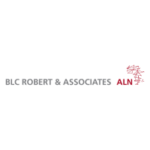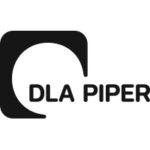-
What are the national authorities for banking regulation, supervision and resolution in your jurisdiction?
The regulation, supervision and resolution of banking institutions is carried out in France by the Autorité de contrôle prudentiel et de résolution (ACPR) which is an independent authority related to the Banque de France, i.e., the French Central Bank. The Banque de France, as part of the European System of Central Banks, contributes to national and European economic policies and ensures financial system stability. It collaborates with the Haut Conseil de Stabilité Financière (High Council of Financial Stability) to implement macroprudential policies.
In this context and among its powers, the ACPR grants licenses to entities which intend to carry out banking activities on the French territory and oversee their compliance with prudential requirements.
The ACPR also has the power to impose sanctions to banking institutions and take resolution actions when necessary. Regarding specifically credit institutions, and pursuant the Single Supervisory Mechanism, the power to grant licenses rests with the European Central Bank (ECB), following a proposal from the ACPR.
-
Which type of activities trigger the requirement of a banking licence?
Under French law, in accordance with the French banking monopoly, only licensed credit institutions and financing companies (sociétés de financement) are authorized to carry out credit transactions on the French territory on a regular basis and for consideration (unless an exception applies).
The notion of credit transaction encompasses granting loans, receiving funds reimbursable from the public (only credit institutions can carry out this activity) and providing banking payment services. Other activities such as intermediation in banking or payment services requires registration of the persons concerned with a specific national register.
-
Does your regulatory regime know different licenses for different banking services?
The French regulatory regime provides various categories of licenses depending on the type of activities carried out:
- credit institution license, which is the only license pursuant to which an entity may collect deposits, in addition to the provision of credit transactions (including loans and issuing guarantees);
- financing company (société de financement) license which allows an entity to offer credit transactions;
- payment institution license allowing to offer payment services such as money transfers and the execution of payment transactions;
- electronic money institution license to issue and manage electronic money.
-
Does a banking license automatically permit certain other activities, e.g., broker dealer activities, payment services, issuance of e-money?
Under French law, credit institutions can carry out activities considered as ancillary to their banking activities, listed by the French Monetary and Financial Code (FMFC) such as exchange transactions, providing financial advice, financial engineering, and services to support business creation and development.
These activities must, however, remain limited in view of the institution’s usual (i.e., banking) activities.
Regarding investment services, credit institutions can carry out the following operations: the placement, subscription, purchase, management, custody, and sale of securities and any financial product. However, they need to be licensed to offer these services. They may also offer wealth management services and payment services.
Credit institutions and electronic money institutions can also provide payment services and services related to electronic money.
-
Is there a “sandbox” or “license light” for specific activities?
There is no “sandbox” or “license light” in France for specific activities.
-
Are there specific restrictions with respect to the issuance or custody of crypto currencies, such as a regulatory or voluntary moratorium?
Under French law, the notion of cryptocurrency is encompassed in a broader definition of crypto assets, which includes utility tokens, security tokens, and cryptocurrencies. A distinction should be made between the issuance of crypto assets and the service of custodian.
Regarding the issuance of crypto assets, French law offered the possibility for Initial Coin Offering issuers to apply for an optional visa from the French Autorité des marchés financiers (AMF) before a public offering of so-called utility tokens that are not classified as financial instruments.
Offers to the public of crypto currencies are now regulated under Markets in Crypto-Assets (MiCA) Regulation, which applies to issuers of asset-referenced tokens (ARTs), e-money tokens, and crypto-assets other than asset-referenced tokens or e-money tokens.
The issuer must publish and notify a white paper to the AMF, which must notably include information about the issuer, the project, the underlying technology, the rights, and obligations attached to the crypto asset and the main negative impacts on the climate and the environment. Issuers must also ensure that their advertising operations are fair, clear, and not misleading.
For the issuance of ARTs, approval is required from issuers (with exceptions, notably for credit institutions). Among the conditions, the issuer must produce a legal opinion stating that the issued token is not a financial instrument or an e-money token.
The provision of custody services of crypto assets on behalf of third parties (which may include holding private cryptographic keys for the purpose of storing, transferring, and securing digital assets) is a regulated service. Therefore, any entity wishing to provide custody services in France had to apply to the AMF to either a digital asset service provider (DASP) registration or for a DASP license. The DASP registration requirements focus primarily on the integrity and competence of the entity’s management, the establishment of anti-money laundering and combating the financing of terrorism (AML-CFT) measures, and cybersecurity protocols. The requirements for the DASP license are substantially similar but more stringent in terms of capital requirements.
The French regime is intended to be gradually replaced by the European crypto assets service providers (CASP) license provided by MiCA Regulation with a transitional period for entities already registered or approved under the French regime. Conditions to obtain a CASP license are similar to those required for the DASP license, allowing licensed providers to access a simplified procedure to obtain the CASP license.
-
Do crypto assets qualify as deposits and, if so, are they covered by deposit insurance and/or segregation of funds?
Crypto assets do not qualify as deposits under French law and are not covered by the deposit insurance guarantee. It should be noted however that DASPs are required to ensure that their clients’ digital assets are segregated in the distributed ledger technology from their own digital assets.
-
If crypto assets are held by the licensed entity, what are the related capital requirements (risk weights, etc.)?
Under French law, DASPs are not subject to any minimum capital requirements. Only licensed DASPs must have professional insurance or comply with own funds requirements, for which several calculation methods are proposed, in order to cover the services specified in their activities program.
All licensed DASPs must have an amount of own funds that must correspond to at least the highest of the following calculation methods:
- own funds requirement based on overheads costs (calculated based on the annual financial statements);
- own funds requirement based on the minimum capital (150 000 euros for the custody service);
- own funds requirement based on the activity level (own funds amount greater than 4.5% of the digital assets the DASPs hold on their own accounts).
Coverage should include, in particular, system failures protection as well as gross negligence in the protection of digital assets and client funds. Specific rules applies if a DASP also provides custody services.
The calculation of own funds must take place no later than three months after the closure of the previous year’s accounts. If necessary, the provider must adjust its own funds to the required level no later than the last business day of the semester following the closure of its annual accounts.
Prudential safeguards required by MiCA Regulation apply to CASPs with specific calculations methods that will varies depending on the service provided (from 50 000 to 150 000 euros).
-
What is the general application process for bank licenses and what is the average timing?
Applications for a license in France must be submitted to the ACPR, that will then coordinate with the ECB which is the authority formally granting the license (application for financing companies are managed and granted directly by the ACPR).
The application process includes the preparation of the application file that includes request for documents and information on the company, its structure, its shareholding, and its contemplated management. A large part of the application file is dedicated to the prudential requirements and how the company intends to meet the regulatory requirements (capital, balance sheet, program of acting, technical, humans and financial means that will be dedicated to the activity, etc.).
The preparation of such application file is generally preceded by a preliminary meeting with the ACPR to outline the contemplated business and specify, when necessary, the regulatory expectations of the regulator as well as the excepted specific documentation. The approval decision for credit institutions is issued within 6 to 12 months of filing the application, it being specified that exchanges with the regulator are likely to suspend the time taken to examine the request for approval.
-
Is mere cross-border activity permissible? If yes, what are the requirements?
Under French law, any entity intending to conduct banking activities in France should be licensed by the ACPR.
However, credit institutions already licensed in another EU/EEA Member State can benefit from the European passport allowing them to operate in France without needing to request a prior authorization from the ACPR. Such institution can operate either through the free provision of services or by establishing a local branch under the freedom of establishment, within the limits of the approval they hold in their home country. To this end, the relevant eligible credit institution should notify its intent to operate in France to the competent banking authority of its home country that will in turn notify the ACPR. The notification must include detailed information regarding the planned activities, the financial services offered, and the organizational structure of the institution.
Credit institutions from non-EU/EEA countries intending to operate in France can do so by establishing a subsidiary or a branch. In both cases, a banking license from the ACPR should be first sought. These institutions must comply with similar requirements and procedures as licensed credit institutions operating in France: the head office of the foreign credit institution must undertake tasks for the branch that are equivalent to those typically entrusted to the board of directors, the supervisory board, or other similar bodies exercising supervisory functions, as well as to the general meeting.
-
What legal entities can operate as banks? What legal forms are generally used to operate as banks?
The FMFC does not impose any specific legal form to companies to operate as banks in France, but it can be noted that a vast majority of credit institutions licensed as banks are incorporated as sociétés anonymes. The ACPR ensures that the chosen corporate form aligns with the proposed activities and that the head office and registered office are located in the same country.
The ACPR is reluctant to grant a license to credit institutions and investment firms incorporated as SAS (sociétés par actions simplifiées) and imposes additional requirements regarding statutory changes.
-
What are the organizational requirements for banks, including with respect to corporate governance?
Under the FMFC, companies applying for banking license should comply with strict corporate governance rules requiring in particular that at least two people are designated as senior managers (dirigeants effectifs), with functions and powers allowing them to oversee the business as well as the risks comprehensively. The nomination of senior managers shall be notified to the ACPR within 15 days following their appointment in order for the regulator to verify that they are “fit and proper”. The same standards and notification process applies to the members of the supervisory body of the company.
Regarding the organization of the bank, governance structures must clearly define responsibilities, implement effective risk management procedures, establish internal controls in a proportionate manner in light of the activities and services carried by the bank.
-
Do any restrictions on remuneration policies apply?
The FMFC sets out specific rules regarding remuneration in credit institutions and financing companies for categories of staff whose professional activities have a significant impact on the risk profile of the entity or its group. This remuneration policy should be aligned with the economic strategy, objectives, values, and long-term interests of the credit institution or financing company and includes measures to prevent conflicts of interest and aims to ensure sound and effective risk management.
It should be noted that when remuneration is performance-based, the variable remuneration is to be determined by a combined evaluation of the individual’s performance, the operational unit’s performance, and the overall results of the financial institution. Guaranteed variable remuneration is prohibited, but may be exceptionally granted to newly hired personnel, provided the financial institution has a solid financial foundation.
Moreover, the variable part of the total remuneration cannot exceed the fixed portion, though it may be increased up to twice the fixed amount by decision of the relevant general assembly of the financial institution. A part of the variable remuneration must be allocated in the form of shares or equivalent ownership rights. Additionally, payment of a part of the variable portion of total remuneration must be deferred through the years. The deferral amount is set based on the nature of the company, the risks it faces, and the individual’s role within the institution.
The remuneration policy must also be evaluated at least once a year through an independent central internal assessment to ensure compliance with the policies and procedures on compensation adopted by the board of directors, the supervisory board, or any other equivalent supervisory body.
-
Has your jurisdiction implemented the Basel III framework with respect to regulatory capital? Are there any major deviations, e.g., with respect to certain categories of banks?
The Basel III framework has been incorporated into the European regulatory framework, including through Directive 2013/36/UE (CRD IV) and Regulation (EU) n°575/2013 (CRR) adding specific macroprudential supervision measures, allowing European national regulators to take additional actions to strengthen financial stability (e.g., the possibility for national regulators to set additional requirements, including the ratio to be adopted for certain buffers).
The French authorities can adjust certain requirements to consider the specificities of the French market. In this regard, the High Council for Financial Stability sets the countercyclical capital buffer rate based on the economic and financial situation, as well as the systemic risk buffer rate based on the transversal and structural risks of the banking system. The domestic and global systemic buffers are set by the ACPR based on the systemic footprint of French banks in France and worldwide.
Systemically Important Financial Institutions (SIFIs) are subject to more stringent requirements and must hold additional capital buffers to mitigate the risks on the global financial system.
-
Are there any requirements with respect to the leverage ratio?
CRR Regulation outlines policies and processes to detect, manage, and monitor excessive leverage risk. Initially, it required reporting to the supervisory authority and publishing the leverage ratio. Since 28 June 2021, CRR II (Regulation (EU) n°2019/876) sets a binding 3% leverage ratio for credit institutions and introduced higher leverage ratio requirements for SIFIs.
Credit institutions or financing company that do not meet the overall capital buffer requirement, or the leverage ratio buffer requirement are prohibited from:
- making a distribution related to Common Equity Tier 1 capital;
- creating an obligation to pay discretionary pension benefits or variable remuneration, or paying such pensions or remuneration (unless the obligation to pay arose prior to the breach of the overall capital buffer requirement or the leverage ratio buffer requirement);
- making payments related to additional Tier 1 capital instruments.
-
What liquidity requirements apply? Has your jurisdiction implemented the Basel III liquidity requirements, including regarding LCR and NSFR?
Liquidity requirements are defined by the CRR Regulation and its delegated regulation and for financing companies, specific national provisions apply. Reporting obligations are defined by several ACPR Instructions.
The Liquidity Coverage Requirement (LCR) aims to prevent banks from relying excessively on short-term funding to finance their medium and long-term assets. The LCR is expressed as a percentage and sets at a minimum level of 100%, which means that the credit institution holds enough liquid assets to cover its net cash outflows during a 30-day stress period.
The ACPR may exempt certain entities from the requirements for liquidity calculation and stable funding submission, provided they are included in liquidity sub-groups and all the conditions set forth in the said article are met. Small-sized institutions may, with prior authorization from the ACPR, proceed with the simplified calculation of their net stable funding ratio. Additionally, credit institutions and financing companies are required to report the Net Stable Funding Requirement (NSFR) to the ACPR.
The NSFR limits excessive reliance on short-term wholesale funding, encourages better assessment of funding risk, and promotes funding stability. In a nutshell, the NSFR is calculated by dividing the weighted available stable funding (liability items) by the required stable funding (balance sheet asset items and off-balance sheet commitments).
-
Which different sources of funding exist in your jurisdiction for banks from the national bank or central bank?
The Banque de France, as part of the Eurosystem, offers several sources of financing to credit institutions. To benefit from these, banks must comply with the participation conditions defined by the Governor’s Decision No. 2015-01 (which includes demonstrating financial soundness). After reviewing a request from an institution to access the Eurosystem’s refinancing operations and confirming compliance with eligibility criteria, the requesting institution must sign an agreement and pledge collateral.
These forms of financing sources are common to all central banks of the Eurosystem, and the interest rates applied are defined by the ECB.
In addition, the Banque de France can grant Emergency Liquidity Assistance (ELA) to solvent financial institutions facing temporary liquidity issues and must inform the ECB within two business days of the operation.
Institutions receiving ELA must submit a funding plan within two months and update it quarterly. They must also report their capital ratios monthly. If any institution breaches the own funds requirements under the CRR Regulation, it must submit a recapitalization plan to the ECB for evaluation, within a timeframe set by the Governing Council.
-
Do banks have to publish their financial statements? Is there interim reporting and, if so, in which intervals?
Each banking or financial entity in France (credit institution, financing company, payment institution, and electronic money institution) has to publish its financial statements annually. Furthermore, listed banks must publish a bi-annual financial report which has to satisfy certain requirements.
-
Does consolidated supervision of a bank exist in your jurisdiction? If so, what are the consequences?
Financial conglomerates are subject to consolidated supervision by the ACPR or the ECB, depending on the group’s size.
A group is considered a financial conglomerate under French law when a regulated entity is at the head of the group and it includes both insurance and banking or investment services sectors, with significant activities exceeding certain thresholds defined by the Order of 3 November 2014.
Activities are considered significant when the average value of specific financial ratios exceed 10%. Additionally, a sector’s activities are significant if its balance sheet exceeds 6 billion euros.
Financial conglomerates must meet additional requirements, including extra capital to cover interconnected risks, consolidated supervision, and obligations to report risk concentrations and internal control systems.
The ACPR supervises banking groups on a consolidated basis in certain situations. This includes when the parent company of the group in the EU/EEA is a credit institution under its supervision, when the parent company is an investment firm and none of its subsidiaries is a credit institution, when the parent company is a finance company under its supervision, or when it oversees the credit institution subsidiary with the highest total balance sheet within a group led by an investment firm.
When the parent company is a financial holding company, an investment holding company, a parent company of a finance company, or a mixed financial holding company, the ACPR exercises supervision on a consolidated basis.
-
What reporting and/or approval requirements apply to the acquisition of shareholdings in, or control of, banks?
As a general rule, changes in a bank’s shareholding must be reported to the regulator.
Requirements vary according to certain thresholds:
- A prior request for approval should be filled with the ACPR, in case of direct or indirect acquisition of a qualified shareholding of a bank exceeding specific thresholds (10%, 20%, 30%, or 50% of the voting rights or capital) and/or encompasses the acquisition of effective control over the management of the institution.
- for other changes affecting the shareholding of a company subject to ACPR control, only a declaration to the ACPR is required.
The regulator must also be notified if a shareholder reduces its share, holding or cease to be a shareholder. Banks are also required to notify the ACPR of any transactions on their share capital as soon as they become aware of it.
-
Does your regulatory regime impose conditions for eligible owners of banks (e.g., with respect to major participations)?
In the situation where a prior request for approval is filed with the ACPR, the application file includes documents and information enabling the ACPR to assess the reputation of the contemplated acquirer, its experience, and its financial soundness.
The ACPR also examines, from a prudential and operational point of view, whether the acquisition is likely to enable the institution to continue its activities in accordance with its program of activities and the authorization it has been granted.
-
Are there specific restrictions on foreign shareholdings in banks?
There are no specific rules under French law imposing specific restrictions on foreign shareholders, either as part of the initial assessment for approval, or when acquiring a significant stake. The assessment of a shareholder will be based on the criteria set out in question 20 (competence, good character, etc.).
-
Is there a special regime for domestic and/or globally systemically important banks?
On the national level, the ACPR is responsible for designating systemically important entities.
Under French law, significant credit institutions and financing companies have to establish specific committees depending on their size, internal organization, and the nature, scale, and complexity of their activities:
- nomination committee identifying and recommending candidates for specific positions (director, members of supervisory bodies). It also evaluates the balance and diversity of the skills of the members of these boards and defines the qualifications and the time required for these functions;
- risk committee that assists the governing body of the credit institution or financing company, as well as in the management of current and future risk appetite. It assists the governing body when monitoring the implementation of its strategy;
- remuneration committee prepares the decisions made by the governing body regarding remuneration, particularly those that impact risk and risk management in the credit institution or financing company.
Entities considered globally systemic are subject to additional capital requirements.
-
What are the sanctions the regulator(s) can order in the case of a violation of banking regulations?
Sanctions are imposed by the ACPR’s enforcement body, the Commission des sanctions. Following an adversarial procedure, the Commission des sanctions can impose a wide range of sanctions:
- disciplinary sanctions that include a warning (avertissement), a reprimand (blâme), prohibition from conducting certain operations for up to ten years, temporary suspension of legal representatives for up to ten years, forced resignation of legal representatives, partial or total withdrawal of authorization or license, etc;
- penalties up to 100 million euros. Breaches in relation with AML-CFT may be sanctioned by a penalty could be up to 10% of the institution turnover.
To determine the sanction, several factors are considered by the Commission des sanctions, such as the nature of the violation, its duration, its eventual repetitiveness, and its impact on the financial system and/or clients.
-
What is the resolution regime for banks?
The resolution regime is an exceptional legal and operational framework aimed at preserving banking stability. This regime applies to all European banks proportionally to their systemic importance.
In this framework, banks are required to develop, update, and submit annually to the ACPR a preventive recovery plan that defines the measures they would be likely to take in the event of a deterioration of their financial situation.
If this plan proves unsuccessful, then the ACPR may require the failing bank to take certain actions such as implementing its preventive plan, modifying its business strategy, negotiating a debt restructuring, and dismissing or replacing senior management.
If a supervised entity faces a crisis situation, the ACPR must determine whether it is failing or likely to fail, in order to initiate a resolution procedure against it and apply resolution tools.
In the latter case, the ACPR has four main resolution tools to be applied separately or not, depending on the situation: the sale of business, asset separation, the use of a bridge institution, and bail-in. The implementation of the tools is subject to conditions provided by the FMFC.
-
How are client’s assets and cash deposits protected?
The Deposit Guarantee and Resolution Fund (Fonds de Garantie des Dépôts et de Résolution) plays a crucial role in France, ensuring the protection of depositors. It guarantees deposits up to 100 000 euros per depositor, per institution, covering savings accounts, current accounts, and other forms of cash deposits. This guarantee applies to both individuals and entities holding eligible deposits within the banking system, including residents and non-residents with accounts in French credit institutions.
Additionally, credit institutions must segregate client assets from their own to safeguard them in case of insolvency.
The French legal framework also establishes specific protections for client assets and liquidity, ensuring their safety during insolvency proceedings with the obligation of asset segregation to which credit institutions are subject.
-
Does your jurisdiction know a bail-in tool in bank resolution and which liabilities are covered? Does it apply in situations of a mere liquidity crisis (breach of LCR etc.)?
The bail-in tool is one of the four instruments that the ACPR can decide to implement when a financial institution meets the conditions for the initiation of a resolution. The bail-in instruments include liabilities and capital instruments that are not core Tier 1, additional Tier 1, or Tier 2, and are not excluded from the scope of internal bail-in measures.
The bail-in tool is exceptional in nature, and its implementation is subject to the decision of the ACPR when certain conditions are met (failure of the institution is proven or foreseeable, no reasonable prospect that any other measure would prevent the failure of the entity within a reasonable timeframe, resolution measure is necessary in light of the objectives of the resolution, and a judicial liquidation procedure would not achieve these objectives to the same extent).
The ACPR can apply bail-in measures to all liabilities of a credit institution or investment firm under resolution. However, the ACPR cannot exercise write-down or conversion powers on secured liabilities, such as covered bonds and financial instruments used for hedging, which are part of the cover pool or secured similarly to covered bonds under national law.
-
Is there a requirement for banks to hold gone concern capital (“TLAC”)? Does the regime differentiate between different types of banks?
The Total Loss Absorbing Capacity (TLAC) has been developed by the Financial Stability Board. In Europe, TLAC requirements are integrated into the Minimum Capital and Eligible Liabilities (MREL) requirements under the Bank Recovery and Resolution Directive and apply only to Global Systemically Important Banks.
The primary objective of TLAC is to minimize the impact of a bank failure on the global financial system. This mechanism requires Global Systemically Important Banks to maintain a ratio of liabilities that can be subject to an internal bail-in in case of resolution.
Global Systemically Important Banks are required to meet the TLAC requirement in addition to the minimum regulatory requirements set out in the Basel III framework and implemented by national regulations.
According to the TLAC, Global Systemically Important Banks must maintain a minimum TLAC ratio of their risk-weighted assets and a minimum leverage ratio exposure.
This regime does not apply to financial institutions that are not classified as systemic (see Question 22 for reference).
-
Is there a special liability or responsibility regime for managers of a bank (e.g. a "senior managers regime")?
Bank managers may be held civilly liable under the same conditions as senior managers of other types of companies for the misconducts in the performance of their duties.
The French Criminal Code also provides for specific offenses applicable to senior managers, such as asset misappropriation, breach of trust, or insider trading. In cases of tax fraud, the manager’s criminal liability is engaged if personal participation in the acts is demonstrated.
Specifically, regarding senior managers of banks, the ACPR may impose disciplinary sanctions such as a temporary suspension (for a maximum duration of ten years) or forced resignation.
Furthermore, pursuant to the FMFC, when a senior manager has disregarded the rules set by a credit institution or a financing company in terms of risk-taking, notably due to their responsibility in actions that resulted in significant losses for the institution or in case of failure to comply with the obligations of honorability and competence, the total amount of variable remuneration paid to senior managers may, in whole or in part, be reduced or subject to restitution.
-
In your view, what are the recent trends in bank regulation in your jurisdiction?
With the publication of the first ESG reports by companies subject to this requirement in 2025, the main challenge lies in improving data quality to effectively combat greenwashing. In this regard, the ACPR has announced that it will continue its controls on the integration of ESG criteria into financial products and sales arguments by the relevant actors.
Additionally, risks related to new technologies are receiving increased attention. The priority is given to the prevention of cyber risks, particularly through the implementation of the Digital Operational Resilience Act (DORA), which aims to strengthen the control of IT service providers and the monitoring of operational risks.
-
What do you believe to be the biggest threat to the success of the financial sector in your jurisdiction?
In 2024, France experienced an increase in business failures, particularly among companies with high levels of debt. Special attention should therefore be given to the most exposed entities, such as those in leveraged finance. A more precise assessment of the quality of bank assets and their practices would help prevent any failures. Furthermore, the ACPR has announced that it intends to develop its risk-based approach and simplify its supervisory scope to tailor its approach to the risk profile of the supervised entities.
France: Banking & Finance
This country-specific Q&A provides an overview of Banking & Finance laws and regulations applicable in France.
-
What are the national authorities for banking regulation, supervision and resolution in your jurisdiction?
-
Which type of activities trigger the requirement of a banking licence?
-
Does your regulatory regime know different licenses for different banking services?
-
Does a banking license automatically permit certain other activities, e.g., broker dealer activities, payment services, issuance of e-money?
-
Is there a “sandbox” or “license light” for specific activities?
-
Are there specific restrictions with respect to the issuance or custody of crypto currencies, such as a regulatory or voluntary moratorium?
-
Do crypto assets qualify as deposits and, if so, are they covered by deposit insurance and/or segregation of funds?
-
If crypto assets are held by the licensed entity, what are the related capital requirements (risk weights, etc.)?
-
What is the general application process for bank licenses and what is the average timing?
-
Is mere cross-border activity permissible? If yes, what are the requirements?
-
What legal entities can operate as banks? What legal forms are generally used to operate as banks?
-
What are the organizational requirements for banks, including with respect to corporate governance?
-
Do any restrictions on remuneration policies apply?
-
Has your jurisdiction implemented the Basel III framework with respect to regulatory capital? Are there any major deviations, e.g., with respect to certain categories of banks?
-
Are there any requirements with respect to the leverage ratio?
-
What liquidity requirements apply? Has your jurisdiction implemented the Basel III liquidity requirements, including regarding LCR and NSFR?
-
Which different sources of funding exist in your jurisdiction for banks from the national bank or central bank?
-
Do banks have to publish their financial statements? Is there interim reporting and, if so, in which intervals?
-
Does consolidated supervision of a bank exist in your jurisdiction? If so, what are the consequences?
-
What reporting and/or approval requirements apply to the acquisition of shareholdings in, or control of, banks?
-
Does your regulatory regime impose conditions for eligible owners of banks (e.g., with respect to major participations)?
-
Are there specific restrictions on foreign shareholdings in banks?
-
Is there a special regime for domestic and/or globally systemically important banks?
-
What are the sanctions the regulator(s) can order in the case of a violation of banking regulations?
-
What is the resolution regime for banks?
-
How are client’s assets and cash deposits protected?
-
Does your jurisdiction know a bail-in tool in bank resolution and which liabilities are covered? Does it apply in situations of a mere liquidity crisis (breach of LCR etc.)?
-
Is there a requirement for banks to hold gone concern capital (“TLAC”)? Does the regime differentiate between different types of banks?
-
Is there a special liability or responsibility regime for managers of a bank (e.g. a "senior managers regime")?
-
In your view, what are the recent trends in bank regulation in your jurisdiction?
-
What do you believe to be the biggest threat to the success of the financial sector in your jurisdiction?





















